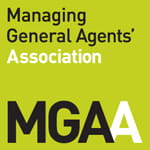
FCA Enforcement Guide Changes: What the New Transparency Means for Firms
A More Visible Future for Enforcement
The FCA has finalised its proposals to revise the Enforcement Guide (ENFG) through Policy Statement PS25/5, with the new framework in force as of 3 June 2025. While much of the original guidance remains intact, the tone has shifted.
How firms prepare for the possibility of an FCA investigation being publicised—even when no enforcement action is ultimately taken. The FCA’s goal? Greater transparency, stronger accountability, and sustained market confidence.
For regulated firms—particularly intermediaries operating in the insurance market—this isn’t just a technical update. It’s a cultural signal. Enforcement is no longer something to quietly manage in the background. It’s something to anticipate, prepare for, and in some cases, respond to in public.
Key Changes That Matter
The Publicity Test Survives—But Exposure Still Grows
The FCA has chosen to retain its existing “exceptional circumstances” test, rather than move to a broader “public interest” standard. But that doesn’t mean firms are off the hook.
The revised ENFG introduces three new disclosure routes, each of which increases the chance that firms will face public scrutiny:
- Where the FCA suspects unauthorised or criminal activity, particularly involving unregulated actors
- When another party discloses an ongoing investigation, prompting FCA confirmation
- Via anonymised announcements used to educate the market or deter misconduct
Simplified Format, Broader Access
The Enforcement Guide itself has been streamlined. Duplication is gone. Key sections are now hosted on the FCA’s website, making the content more digestible—and more accessible to a wider audience.
This isn’t just about usability. It reinforces a shift from enforcement as a behind-the-scenes process to something more open, more understandable, and more accountable.
Faster, Sharper Investigations
The FCA is placing greater emphasis on speed and proportionality. Investigations are becoming more focused and less drawn out—reducing the window for firms to course-correct or prepare internally.
For compliance leaders, this means fewer delays and less ambiguity—but also more pressure to get things right the first time.
The End of Private Warnings
The FCA will no longer issue private warnings. Instead, firms will receive feedback through standard correspondence—without formal labelling.
It may seem subtle, but it’s a meaningful change. A private warning, while serious, came with recognised parameters. A letter without definition? That can be harder to interpret, and even harder to explain to stakeholders.
Future Enforcement Changes Will Still Be Consulted On
One element that stays firmly in place: industry consultation. Following pushback, the FCA confirmed that all future amendments to the ENFG will go through the usual consultation process. A win for firms seeking predictability—if not certainty.
What the FCA Will Track
- The changes are already live—but the FCA will continue to monitor how they play out in practice. Areas of focus include:
- The effect of increased publicity on market confidence
- Shifts in whistleblowing activity
- How firms adapt their internal protocols
- Outcomes of investigations that are publicised but lead to no action
What This Means for Your Firm
Now is the time to reassess not only how your firm responds to enforcement, but how it prepares for the possibility of being named, referenced, or anonymised in public.
What firms should be doing now:
- Revisit your enforcement response framework, particularly around unauthorised activity or third-party exposure
- Update your crisis communications plans to factor in reactive or anonymised FCA announcements
- Educate your senior leaders on how reputational and compliance risk intersect in a more transparent enforcement era
- Clarify internal protocols on whistleblowing, legal privilege, and individual representation
- Audit relationships with ARs, introducers, and suppliers—especially where oversight could invite scrutiny
How Padda Consulting Can Help
At Padda Consulting, we help firms face regulation with confidence—not confusion.
We support regulated firms to:
- Align enforcement readiness plans with the revised ENFG
- Strengthen internal governance to withstand scrutiny
- Deliver board-level briefings on enforcement trends and transparency risks
- Develop practical reputational risk mitigation strategies
- Assist with FCA engagement throughout an investigation
Preparing early gives firms more control over how investigations are handled—and perceived. If you’d like support navigating these changes, get in touch.

